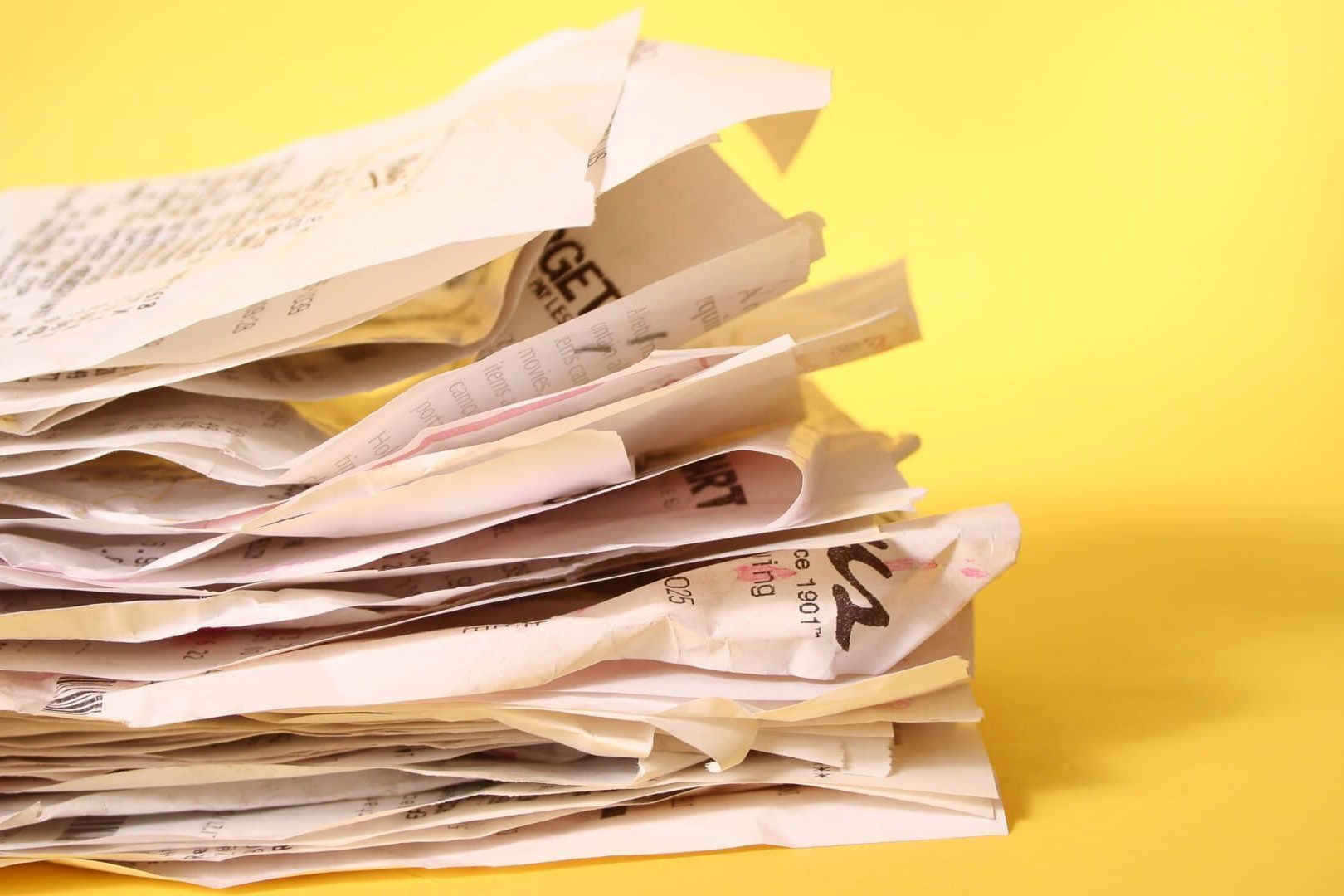Be organised for EOFY and make tax return time a breeze
Posted on September 22, 2021
Australians lose millions in unclaimed tax deductions each year. So, when it comes to getting the most from your tax return, it pays to be organised (and your tax accountant will love you for it).
When tax time rolls around, do you procrastinate over sorting through the receipts piled up on your desk, scattered around the house and hidden in jacket pockets? You’re not alone. Most individuals and small businesses in Australia do not excel in record-keeping for their tax returns. But, in doing so, they may be missing out on eligible tax deductions.
Why be organised?
By having your tax records in order, you will maximise your tax refund and feel a lot less stressed at tax time. Sound good? Keep reading.
Maximise your tax refund
By handing over a set of organised records to your accountant, they may be able to find tax deductions you didn’t even know you had. If you get in the habit of keeping and filing everything, your accountant will be in a better position to maximise your tax refund for you.
Stress less about your tax
By devoting a few minutes to stay on top of your records throughout the year, tax time will become a whole lot less stressful. There will be no reason to dread visiting your tax agent, and you’ll likely be delighted with your tax refund.
What to keep?
What records do you need to keep for your tax return? The ATO requires you to keep records for all your income, expenses, and deductions for five years. Going through your bank statements is a simple way to identify what you need to find records or receipts for.
Income
You must declare the income you receive for each financial year on your annual tax return, including income from your employment, interest, dividends, and rental income. For example, your accountant may want your PAYG summary, bank and dividend statements and rent receipts to verify your income.
Expenses
When it comes to claiming expenses as tax deductions, the general rule is that anything you have paid for that helps you earn your income is claimable. This can range from petrol to professional development.
Other deductions
You may also be able to claim deductions for other items, such as:
- Personal super contributions made over and above the minimum guarantee.
- Gifts or donations to charitable organisations over $2.
- The cost of managing your tax affairs is considered a tax deduction in the following year.
Make sure you keep records so your accountant can include them in your tax return.
Ways to be organised
There are lots of different ways to keep your tax receipts organised. Your system doesn’t need to be complicated; it just needs to work.
The analogue method
Putting all your receipts in a shoebox or folder is a tried and tested way to keep your records safe, if not overly organised. Still, at the end of the financial year, you can proudly deliver it to your accountant, and they can work their magic.
The problem with this method is that once paper records are gone, they are gone. Paper receipts fade over time and can easily become damaged, misplaced, or lost. And of course, what about all those electronic receipts?
Going digital
The best way to manage your records and receipts these days is electronically.
The simplest way to do this is to take a photo of any paper receipts on your phone and be sure to save it somewhere secure other than your phone. For example, you can email it to yourself with a relevant subject, so it’s easy to find when you need it.
There is a range of apps available these days to help you keep track of your income, expenses and deductions too. Many of them offer secure backup of all your data and offer ways to share it with your tax agent easily.
Whatever method you choose, you can be sure that you’ll be feeling good about tax time and looking forward to receiving the maximum refund from your tax return.
Remember to Lodge
Remember, you must lodge your individual tax return, or engage with a registered tax agent, by 31st October each year. This applies to most business tax returns, unless your business is operated as a company.
If you are lodging the company tax return yourself, then you will need to check the due date on the ATO website. The lodgment date for most company tax returns (including corporate trustees) is generally the 28th of February. If you are engaging a registered tax accountant, you will need to do so prior to the due date.
To make the most of your tax return, whether as an individual, a business, a Trust or a Company, talk to our friendly team of tax experts.

Tailored advice,
maximum benefit
At JSA Accounting, we take great pride in providing a comprehensive taxation, accounting and financial planning service in a personal and professional manner to clients in Adelaide, South Australia, and across Australia.
A relationship you can trust
We listen, hear and help. Meet our amazing team who understands your business and life goals.




